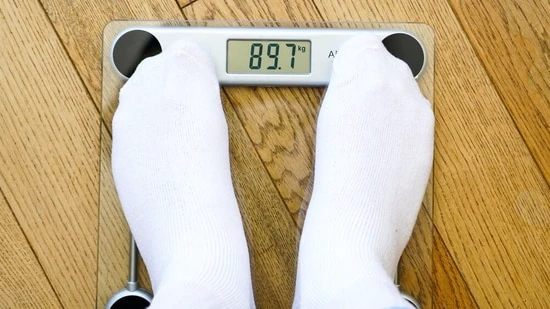Weight loss is a continuous journey, with milestones along the way toward your goal weight. Tracking your progress is a standard part of the process, which involves stepping on the scale from time to time.
But hyperfixation on checking the weight may be counterproductive. Weight loss is often not linear, always. The fluctuations may freak you out more and demotivate you instead. It will make you undermine your own progress. So much like anything else on this weight loss journey, smart weight tracking is the way forward.
Fitness coach Caitlin Wilson, in a May 24 Instagram post, revealed the worst times to step on a weighing scale, explaining that the body naturally tends to hold onto weight during certain periods.
1. Monday morning
Monday is the fresh start of the week with new plans, so it is not unusual to check in on your weight. But this may not be a good idea, as Caitlin reminded that the weekend binge on your comfort, guilty foods may show up on the scale. She highlighted that the extra carbs, salt, and drinks over the weekend cause water retention, hence making the numbers go up a bit. She added, “You didn’t gain body fat, you’re just holding water and food. Give it a few days to settle.”
2. After eating a salty or high-carb meal
“After salty or high-carb meals, takeout, French fries, and pizza night, these meals cause your body to retain water. The scale might spike, but it’s not fat. It’s just temporary,” the fitness coach explained. The body has a tendency to temporarily retain weight, making the scale spike.
3. During period
Periods bring the classic bloating and a feeling of heaviness, so minor weight changes can be a normal part of your cycle, as Caitlin elaborated, “Your cycle naturally causes bloating and inflammation. Hormones are doing their thing, ignore the scale and be kind to yourself.”
4. Right after a big meal
It is a no-brainer not to check weight immediately after a heavy meal. She wrote, “The scale reflects food still being digested, not body fat. Give it time.”
5. Late at night
Despite late-night thoughts about weight loss and the sudden urge to work out or check the scale, don’t, as the fitness coach reasoned, “Late at night after a full day of food, drinks, and movement, your weight is at its highest. Don’t even look at the scale-it’s not telling you anything helpful.”
6. After a workout
The first thought might be to check in after your intense sweat session of strength training or cardio, but avoid this, too, as she noted, “After a workout ,sweating, water intake, and muscle inflammation all impact the scale. What you see is fluid fluctuation, not fat changes.”
7. Not regular in the bathroom
Your faeces can affect the number on the scale, as the fitness coach pointed out, “You can get on the scale at this time, but just know that the scale will likely be higher if you aren’t going to the bathroom regularly ”
So when is the right time to lose weight? The fitness coach shared that the best time to weigh yourself is in the morning, after using the bathroom and before eating or drinking. Midweek weigh-ins, like Tuesday or Friday, also help give an accurate reading.
